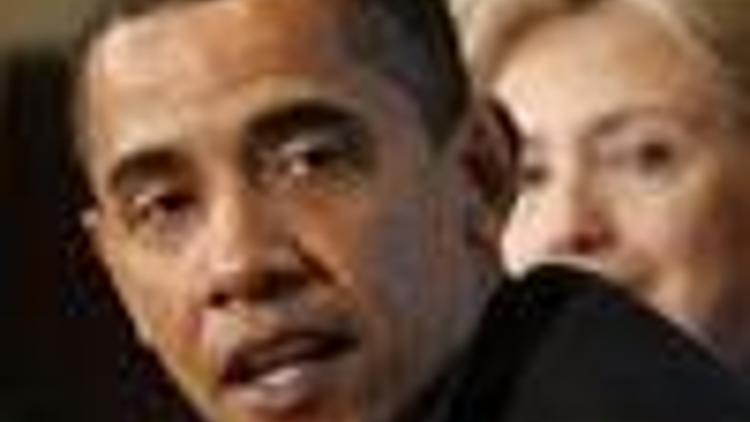Obama says financial sector to be smaller in U.S. economy
Güncelleme Tarihi:

WASHINGTON - The financial sector will make up a smaller part of the U.S. economy in the future as new regulations clamp down on "massive risk-taking," President Barack Obama said in an interview published on Saturday.
Obama, whose young administration has spearheaded a raft of reforms in the banking sector as part of efforts to tackle the financial crisis, said the industry's role in the
�
"What I think will change, what I think was an aberration, was a situation where corporate profits in the financial sector were such a heavy part of our overall profitability over the last decade," he said told the New York Times Magazine.
�
"Part of that has to do with the effects of regulation that will inhibit some of the massive leveraging and the massive risk-taking that had become so common."
�
Obama said some of the job-seekers who may normally have gone to the financial sector would shift to other areas of the economy, such as engineering.
�
"Wall Street will remain a big, important part of our economy, just as it was in the '70s and the '80s. It just won't be half of our economy," he said.
�
"We don't want every single college grad with mathematical aptitude to become a derivatives trader."
�
The Obama administration in March proposed sweeping reforms to curb risk-taking on Wall Street and close regulatory gaps to prevent the kind of excesses that led to the worst financial crisis since the 1930s Great Depression.
�
The president said in the interview that better regulation would help restore confidence in the
�
"A more vigorous regulatory regime, I think, will help restore confidence, and you're still going to see a lot of global capital wanting to park itself in the
�
REGAINING TRUST AND CONFIDENCE
Obama expressed optimism that the market for securitized products would pick up, though he said that could take time.
�
The Federal Reserve, with taxpayer capital from the U.S. Treasury, is supporting consumer and real estate lending markets through a loan facility that could reach $1 trillion.
�
Holders of existing asset-backed and commercial mortgage-backed securities can get loans from the Fed by putting up their securities as collateral.
�
The facility aims to unclog frozen credit markets and jumpstart securitization.
�
"We're going to have to determine whether or not as a consequence of some of the steps that the Fed has been taking, the Treasury has been taking, that we see the market for securitized products restored," Obama said.
�
"I'm optimistic that ultimately we're going to be able to get that part of the financial sector going again, but it could take some time to regain confidence and trust."
�
Part of Obama's regulatory reforms include the creation of a new "systemic risk regulator" with broad powers to seize large non-bank financial firms, such as insurers, hedge funds or private equity companies, if they are deemed to threaten the stability of the financial system.
�
Large, "systemically important" firms would be required to hold bigger capital cushions.
�
Obama also said financial rules should be crafted according to what an institution actually does to avoid a regulatory gap in areas such as commercial and investment banking.
�
"Other countries that have not seen some of the problems in their financial markets that we have nevertheless don't separate between investment banks and commercial banks," he said, citing
�
"The experience in a country like

